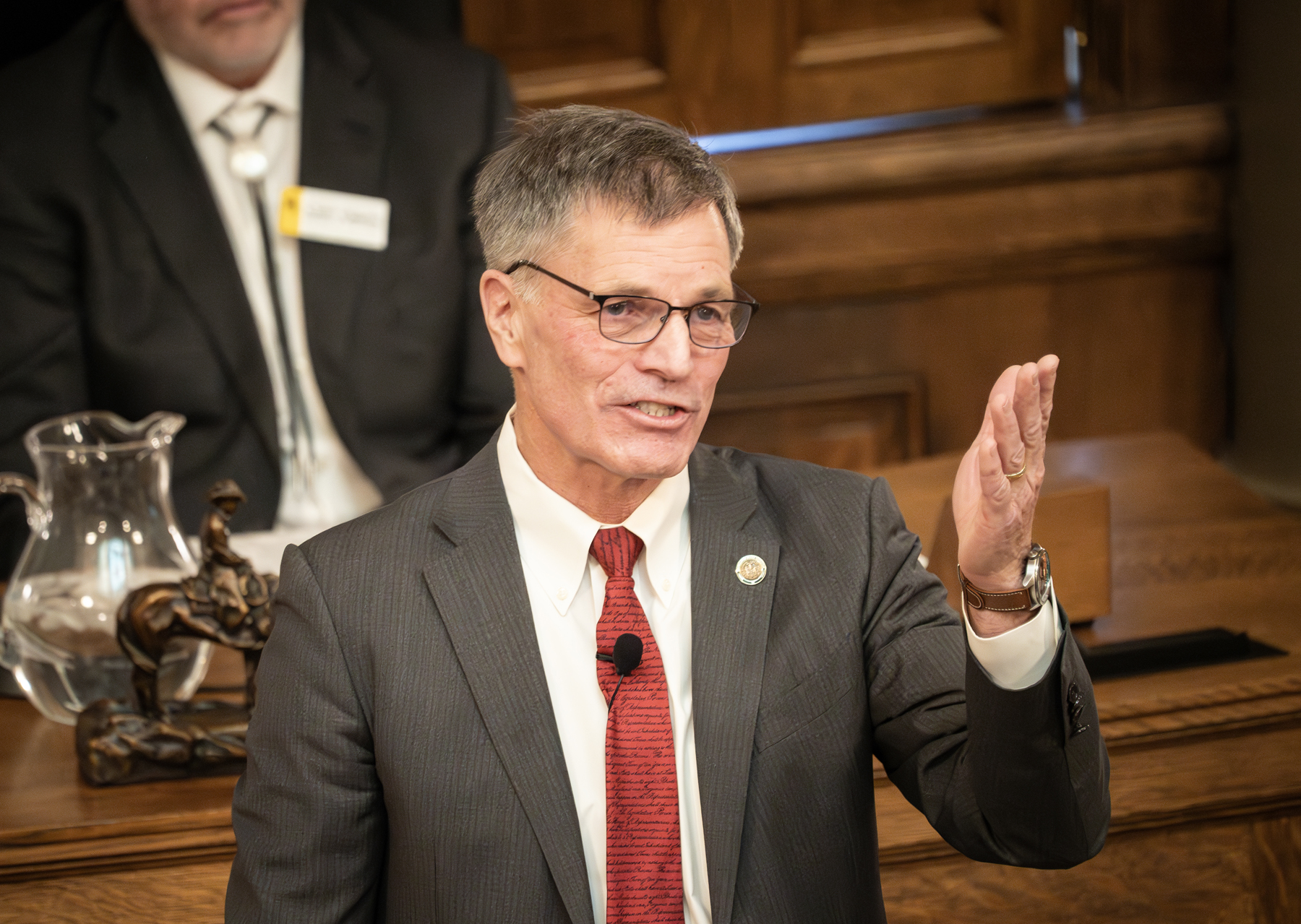Governor vetoes two bills, signs 16 more into law

Gov. Mark Gordon during the 2024 Legislative Session. Photo by Michael Smith
CHEYENNE — A week after the last day of the 2025-26 biennial budget session, Gov. Mark Gordon vetoed two bills and signed several others into law on Friday.
The governor vetoed Senate Files 13, “Federal land use plans-legal actions authorized,” and 103, “Wyoming PRIME Act,” both of which he said overstepped the Wyoming Legislature’s boundaries, according to a Friday afternoon news release.
SF 13 provided $75 million out of the Legislative Stabilization Reserve Account (otherwise known as LSRA or the state’s “rainy day fund”) to spend on litigation issues against the federal government over its use of state lands.
Gordon said in his veto letter this bill was unconstitutional because it was a “clear attempt to cross, blur and trample the line of separation between our equal, but separate, branches of government.”
The bill granted authority to the Legislature to pursue litigation cases, a power the Executive branch already has, he said.
This bill not only duplicated funding, Gordon said in the release, but also created confusion in the courts over who should represent Wyoming.
“At best, competing litigation efforts would only serve to confuse courts as to who represents the State of Wyoming, and at worst it would enable frivolous and political pursuits,” Gordon wrote in the release.
He added that the bill was also not “fiscally conservative,” because the $75 million in litigation funding is equivalent to 67% of the Attorney General’s Office biennial budget.
The other bill Gordon vetoed was SF 103, a “trigger” bill set to go in effect should the federal PRIME Act, or Processing Revival and Intrastate Meat Exemption Act, pass in Congress. Gordon said he was in favor of food freedom legislation — however, this bill “could create confusion among consumers, meat processors and livestock producers.”
Passing this bill before the federal PRIME Act goes into effect also puts Wyoming producers at risk of being fined or losing their license, Gordon said in the release.
“Regardless of their merits, I find trigger bills to be troublesome because the Legislature is creating law on an event yet to occur,” Gordon wrote in his veto letter. “As such, these efforts only clutter our laws.”
Light and high profile vehicles
During the 2023 interim session, members of the Legislature’s Joint Transportation, Highways and Military Affairs Committee worked to create legislation that would reduce the number of blow-over accidents on Wyoming’s interstates.
Both a House bill and Senate file were submitted by the committee at the start of the session, but the House bill failed to pass its introductory vote. However its sister bill in the Senate successfully made it all the way through to the governor’s desk.
SF 113, “Light and high profile vehicle closures-2,” creates a misdemeanor for any driver of a light and high profile vehicle “who willfully fails to observe” the closure of roads to these vehicles. A first-time violation subjects the driver to a $1,000 fine and possible 30-day imprisonment.
A second or subsequent offense within three years after a conviction subjects the driver to a $2,500 fine and possibly up to 30 days imprisonment.
To look at and learn more about the 15 other bills that were signed by the governor on Friday, visit governor.wyo.gov/state-government/ bills.
This story was published on March 16, 2024.







